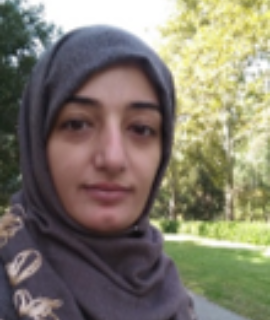Title : Formation of nanowires of silicon suitable for lithium ion battery application
Abstract:
Silicon is regarded as an excellent candidate for anode of Lithium ion batteries, due to its extremely high Lithium storage capacity. The theoretical specific capacity of Silicon is around that of Lithium, showing its great potential as an electrode material for Lithium based batteries. However, this huge capacity for Lithium storage enforces a significant mechanical stress on the bulk Silicon material, which eventually can lead to its cracking and loosing the contact to the current collector. Using Silicon nanostructures, instead of its bulk format, can considerably alleviate this problem, providing sufficient space for expansion of Silicon during Lithium insertion through the intrinsic space between nanowires. In addition, nanostructures can better tolerate the expansion and resist against cracking, in comparison to the bulk material. The present paper reports the formation of Silicon nanowires using metal assisted etching (MAE) technique. This process is a fast and simple approach, that makes use of a thin nanometric layer of Gold as an effective catalyst to enhance the etching of Silicon. To accomplish this process, Si wafer has been placed in a RF-sputtering system to deposit a 1 nm Gold layer on its surface. Applying Hydrogen plasma with a 250 W power, 200 sccm flow rate, and 5 min duration, using a RIE system, helps to form nano-islands of Gold on the Silicon wafer. Next, the sample has been immersed in the HF:H2O2:Ethanol (1:1:6) solution for 20 min. This solution would etch the Silicon much faster from the places that Gold nano-islands are on the surface, due to the catalytic effect of Gold layer, which yields the synthesis of Silicon nanowires on the surface of the sample. The nanowires can be released from the substrate through a tip sonication in an Ethanol environment. The obtained Silicon nanowires can be used as a high potential anode material in Lithium ion battery application.
Audience Takeaway:
- Introduction to Lithium ion batteries will be explained
- Silicon based anode material is introduced as the pioneer anode in the modern Lithium ion batteries
- MAE synthesis of Silicon nanowires is explained.
- These topics are part of the emerging technologies in the Lithium ion battery field, that can help the audience to be familiar with these topics and expand their research or teaching.
- This research subject can lead to having higher performance Lithium ion batteries


